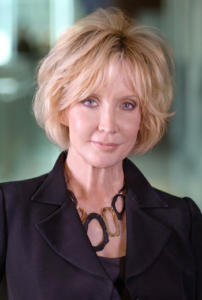
Date/Time
Date(s) - 16 Sep 2019
9:30 AM - 5:00 PM
Location
The Biodesign Institute at ASU

Developing the Commercial Spaceflight Research Marketplace: Challenges, Solutions and Benefits
Monday, Sept. 16, 9:30 a.m. – 5 p.m.
Biodesign Institute Auditorium, 727 E. Tyler St., Tempe, AZ 85281
Register
We have assembled expert speakers from the Commercial Spaceflight Federation, International Space Station (ISS) National Lab, NASA, and the suborbital and microgravity industry, along with leading academic researchers from multiple disciplines to optimize the translational benefits of these innovative technology platforms as drivers of the commercial spaceflight market.
This daylong workshop will provide you with unique insight into strategic perspectives as well as practical challenges and solutions to help you become integrated into this rapidly emerging and exciting industry, including pre-flight experiment optimization, spaceflight hardware development, experiment implementation, mission integration and operation. Meet the experts and see how you can become part of this revolution which will provide next generation solutions to major challenges on Earth and in space.
Featuring a keynote presentation by Professor Cheryl Nickerson, Arizona State University, School of Life Sciences, Biodesign Center for Fundamental and Applied Microbiomics.

Professor Cheryl Nickerson, Arizona State University, School of Life Sciences, Biodesign Center for Fundamental and Applied Microbiomics.
Dr. Cheryl A. Nickerson is a Professor of Life Sciences at the Biodesign Institute at Arizona State University. She is internationally recognized for her pioneering spaceflight biomedical research discoveries showing unique microgravity-induced changes in the disease-causing potential of microbial pathogens and advances in bioengineering three-dimensional cell culture models of human tissues for infectious disease research and drug/vaccine development. Her research on the International Space Station resulted in a paradigm shift in our understanding of infectious diseases, led to advanced biotechnology applications for tissue engineering, and laid the foundation for use of the microgravity research platform for modern microbiological research in spaceflight and spaceflight vaccine development initiatives. Her team is also actively involved in studying spaceflight microbiomes and microbial responses that could negatively impact spacecraft life support systems. She received the Presidential Early Career Award for Scientists and Engineers (PECASE), NASA’s Exceptional Scientific Achievement Medal, and was selected as a NASA Astronaut candidate finalist. She is founding Editor-in-Chief of the Nature journal npj Microgravity, has testified before Congress regarding the potential of the microgravity research platform for next generation advances in biomedical research, and continues to serve as a consultant to NASA by participating on multiple panels, including the Decadal Surveys, for the National Academy of Sciences.
